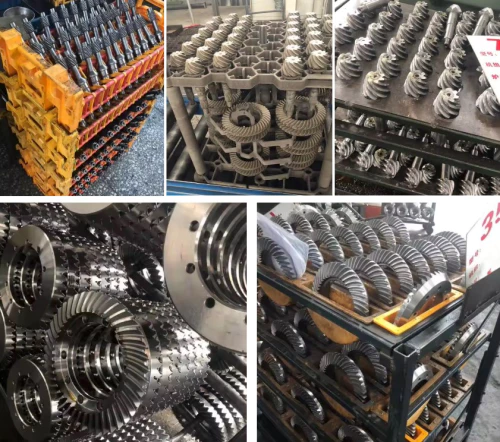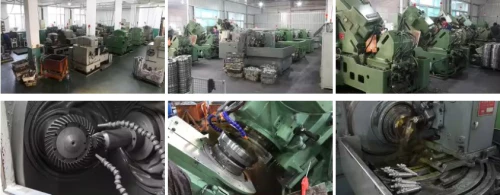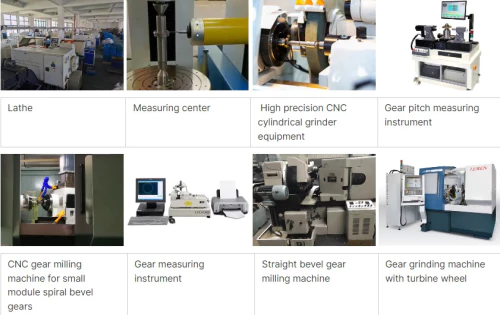Forging Bevel Gear Tooth Contact Pattern Validation
Introduction
Forging bevel gears are a type of bevel gears that are manufactured through the forging process. Forging involves shaping metal through the application of localized compressive forces, typically using a die or hammer. In the case of bevel gears, the forging process is used to form the gear teeth and create the desired gear geometry.
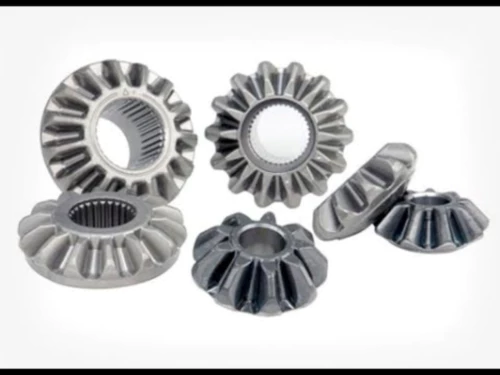
Advantages of Forging Bevel Gears
1. High Strength
Forging bevel gears exhibit superior strength compared to gears manufactured through other processes. The forging process ensures a dense and uniform microstructure, resulting in enhanced mechanical properties and increased load-carrying capacity.
2. Improved Fatigue Resistance
The forging process enhances the fatigue resistance of bevel gears, enabling them to withstand repetitive loading and extended service life without failure.
3. Precise Gear Tooth Geometry
Forging allows for precise control over the shape and dimensions of the gear teeth, ensuring accurate tooth profiles and optimal tooth contact pattern.
4. Cost-Effectiveness
Forging bevel gears offer cost advantages due to their high production efficiency, material utilization, and reduced need for secondary machining operations.
5. Versatility in Material Selection
Forging can be performed on a wide range of materials, allowing for the selection of specific alloys or materials with desired properties such as strength, wear resistance, or corrosion resistance.
6. Enhanced Structural Integrity
The forging process eliminates defects and improves the structural integrity of bevel gears, ensuring reliable performance even under heavy loads and harsh operating conditions.
7. Tailored Mechanical Properties
By controlling the forging parameters, the mechanical properties of bevel gears can be tailored to meet specific application requirements, such as hardness, toughness, or dimensional stability.
8. Reduced Lead Time
Forging bevel gears offer shorter lead times compared to other manufacturing methods, contributing to faster production and delivery of gear components.
9. Environmental Sustainability
Forging is a sustainable manufacturing process that minimizes material waste and energy consumption, making it an environmentally friendly choice for gear production.
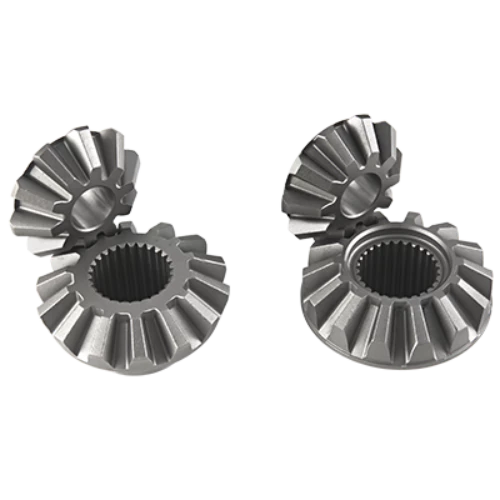
Working Principle
Forging bevel gears operate based on the fundamental principles of gear mechanisms. They consist of two intersecting shafts, each with a conically shaped gear (bevel gear) mounted on it. The teeth of the bevel gears are designed to have a specific tooth profile, such as straight, spiral, or hypoid, depending on the application requirements.
When the input shaft rotates, the engagement of the teeth of the bevel gears causes a transfer of rotational motion and torque to the output shaft. The contact between the mating teeth ensures power transmission while maintaining proper alignment and smooth operation.
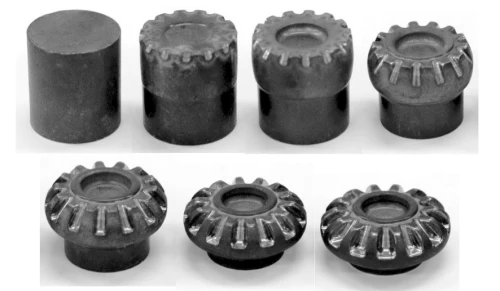
Applications
1. Automotive Industry
Forging bevel gears find wide applications in the automotive industry, including powertrains, differentials, and steering systems. They provide reliable and efficient torque transmission, ensuring smooth operation and optimal performance of the vehicles.
2. Industrial Machinery
Industrial machinery, such as heavy-duty equipment and manufacturing systems, utilize forging bevel gears for transmitting power and motion. They are capable of handling high loads and operating under demanding conditions.
3. Aerospace and Defense
In aerospace and defense applications, forging bevel gears are used in aircraft engines, helicopters, and military vehicles. They offer excellent performance, durability, and reliability, meeting the stringent requirements of these industries.
4. Renewable Energy
Forging bevel gears play a crucial role in wind turbines and solar tracking systems, efficiently converting the rotational motion of the wind or sun into electrical energy. Their high strength and precise tooth geometry ensure optimal energy conversion.
5. Marine and Shipbuilding
Marine and shipbuilding applications rely on forging bevel gears for propulsion systems, steering mechanisms, and other critical components. They provide reliable power transmission in marine environments, resisting corrosion and withstanding marine loads.
6. Agricultural Machinery
Agricultural machinery, such as tractors and harvesters, utilize forging bevel gears for their transmission systems. They enable efficient power transfer and reliable operation in the demanding conditions of agricultural operations.
7. Power Generation
In power generation plants, forging bevel gears are used in turbines, generators, and other equipment for transmitting power and controlling rotational speeds. Their high strength and precise tooth contact pattern ensure efficient power generation.
8. Robotics and Automation
Forging bevel gears are essential components in robotics and automated systems, providing accurate motion control and torque transmission. They enable precise positioning, smooth operation, and reliable performance in various robotic applications.
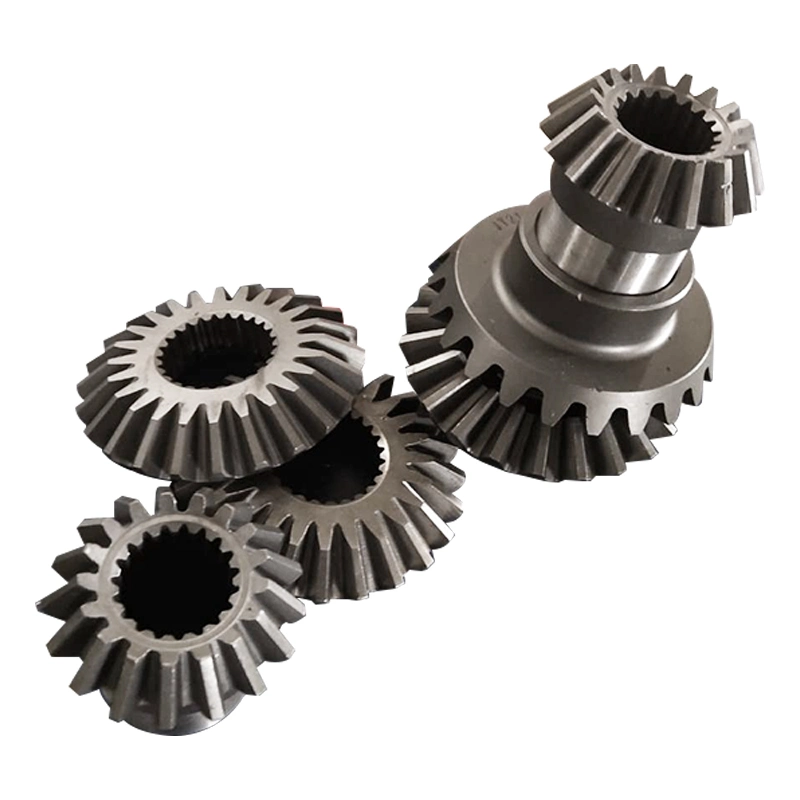
Installation and Maintenance
Installation:
1. Proper Alignment: Ensure accurate alignment of the bevel gears to prevent excessive wear and premature failure.
2. Lubrication: Apply appropriate lubricants to reduce friction and wear between the gear teeth.
3. Mounting Bolts: Securely fasten the bevel gears with suitable mounting bolts to ensure proper engagement and alignment.
4. Inspection: Perform thorough inspections to verify the correct installation and identify any potential issues or defects.
Maintenance:
1. Lubrication: Regularly lubricate the bevel gears to maintain optimal performance and prevent excessive wear.
2. Cleaning: Keep the gears clean and free from debris to prevent contamination and maintain smooth operation.
3. Inspection: Periodically inspect the gears for signs of wear, damage, or misalignment. Take appropriate actions based on the inspection results.
4. Replacements: Replace worn or damaged bevel gears with new ones to ensure reliable operation and prevent failures.
5. Gearbox Maintenance: If the bevel gears are part of a gearbox, follow the manufacturer's recommended maintenance procedures for the entire gearbox.
6. Load Monitoring: Monitor the loads applied to the bevel gears and ensure they operate within their rated capacity to prevent overloading and premature failure.
7. Training and Expertise: Ensure personnel involved in the maintenance of bevel gears have proper training and expertise to perform their tasks effectively and safely.
8. Record-Keeping: Maintain records of installation, maintenance, and inspection activities to track the history of the bevel gears and aid in troubleshooting and future maintenance.
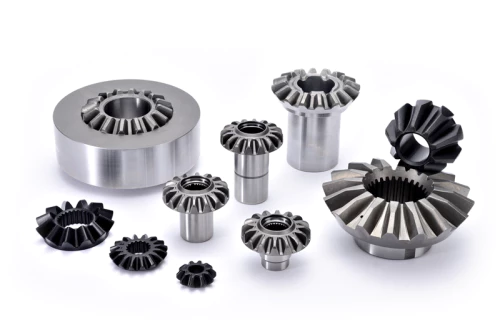
How to Select the Right Forging Bevel Gear
When selecting a forging bevel gear, several factors should be considered:
1. Application Requirements
Understand the specific requirements of the application, including torque, speed, load capacity, and environmental conditions.
2. Design and Specifications
Define the required gear specifications, such as tooth profile, gear ratio, dimensions, and tolerances, based on the application requirements.
3. Material Selection
Select the appropriate material based on factors such as strength, wear resistance, and corrosion resistance, considering the application environment.
4. Quality and Reliability
Ensure the bevel gears are manufactured to high-quality standards and have a proven track record of reliability in similar applications.
5. Load-Carrying Capacity
Evaluate the gear's load-carrying capacity to ensure it can handle the expected loads without excessive wear or failure.
6. Efficiency and Performance
Consider the gear's efficiency and performance characteristics to maximize power transmission and minimize energy losses.
7. Customization and Adaptability
Assess the manufacturer's ability to provide customized solutions and adapt the gears to specific requirements or modifications.
8. Cost Considerations
Balance the desired performance and quality with the budget constraints to ensure a cost-effective solution.
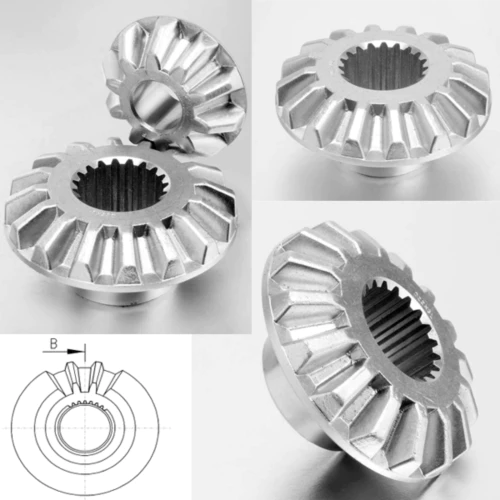
Shaoxing Chaoli – Leading Manufacturer of Forging Bevel Gears
Shaoxing Chaoli is a professional manufacturer of forging bevel gears in China. Our products are exported to different countries such as Spain, the Netherlands, the United States, South Korea, Turkey, and Russia. At the same time, we sincerely hope to help customers develop new products and solve technical and quality problems. We are willing to meet the needs of users with high-quality products, fair prices, and perfect services.
In short, we adhere to the principles of quality first, timely delivery, and credit first, treat every business partner sincerely, and wholeheartedly welcome friends from the business community to cooperate with us to develop together and create brilliance.
Besides forging bevel gears, Shaoxing Chaoli also offers other gear products such as Worm Gear, Spiral Bevel Gear, Helical Gear, Spur Gear, Plastic Gear, Metric Gear Rack, etc. Customers are welcome to inquire about customized products.
Shaoxing Chaoli is a professional manufacturer of gears in China. Its products are mainly sold to hundreds of fixed suppliers such as domestic steel rolling mills, shipyards, precision machine tool factories, automation machinery factories, and various distribution companies, and exported to Western Europe, the Middle East, and Southeast Asia and other countries and regions.
The developing Shaoxing Chaoli currently has hundreds of employees, including many engineers, with fixed assets of 20 million yuan and an annual output value of 50 million yuan.
The company has a complete set of strict quality management systems, equipped with a series of precision measuring instruments such as optical projectors and 16 full-process production monitoring systems. Shaoxing Chaoli has considerable competitiveness in the same industry.
